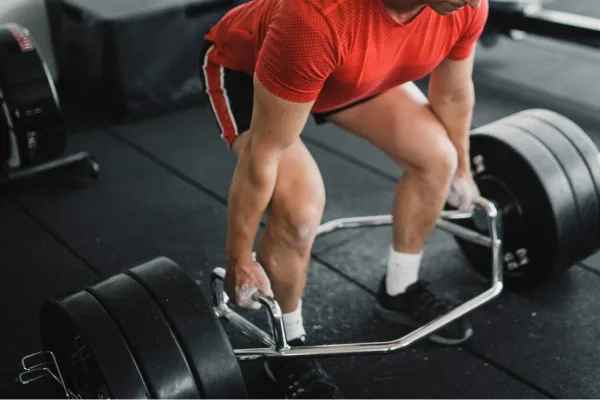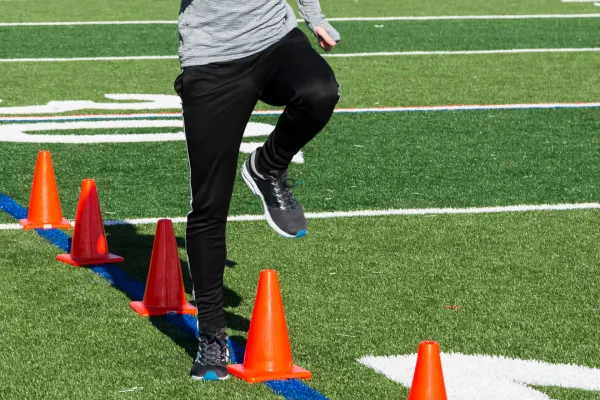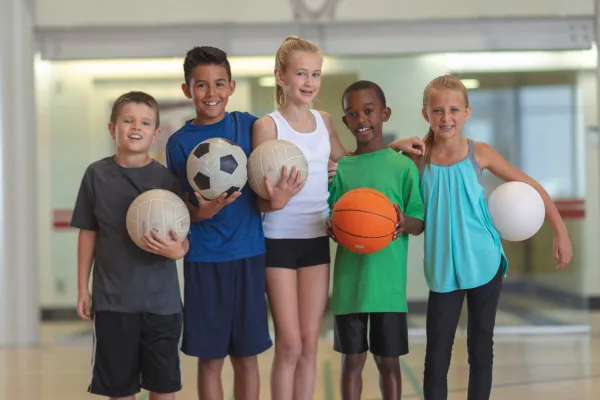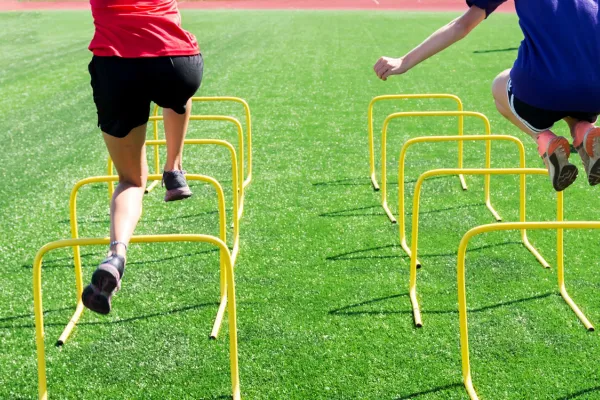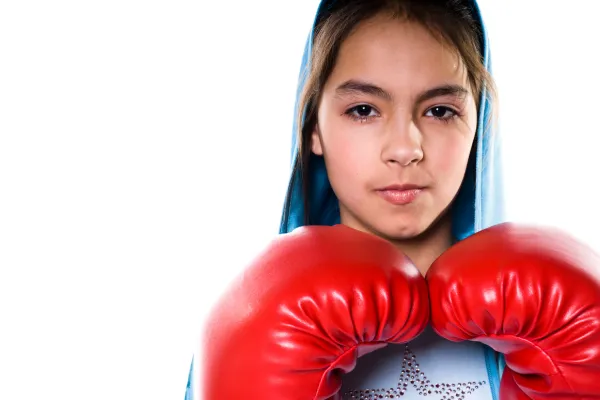
Redefining Mental Toughness for Girls: Coaching with Strength and Smarts
Written by Julie Hatfield-Still, Brand Executive for the International Youth Coaching Association and President of Beyond The Game Alliance
We love to talk about mental toughness in sport. We slap it on locker room posters, praise it from the sidelines, and demand it from our athletes–especially our girls. But what if our traditional view of mental toughness is causing more harm than good?
What if we’ve mistaken suppression for strength, and grit for growth?
The Problem with the Old Definition
Traditionally, mental toughness has meant “push through,” “don’t show weakness,” and “keep going no matter what.” While these mental attitudes may breed short-term performance gains, it can often create long-term consequences–especially for female athletes. Many girls are internalizing a harmful message: be tough, but not too emotional; be fierce, but never fragile.
I’ll never forget the moment everything caught up with me. I had been lacing up my cleats since I was seven, absorbing the message to “be tough” like gospel. So I did, I pushed through pain, buried emotion, and wore resilience like armor. But two weeks before college graduation, that armor cracked. I found myself on the sidelines, gasping for air, chest tight, tears I didn’t understand flooding in–and afraid someone would see me. I felt embarrassed yet invisible in my unraveling. And the heartbreaking truth? My story is far from rare. I hear echoes of it in nearly every conversation I have with female collegiate athletes today.
Research in sport psychology and adolescent development shows that the pressure to appear mentally tough often leads girls to suppress emotions, silence themselves, and disconnect from their bodies. On the outside, they’re thriving. On the inside, they’re unraveling. Anxiety, perfectionism, and burnout are rising–often disguised as “high performance.”
This isn’t just about sport. It’s shaping girls into women who spend their lives chasing approval, silencing their needs, and believing their worth is something they have to earn–over and over again.
And that’s not a strength. That’s survival.
A New Definition of Toughness
In my recent webinar, Unlocking Her Potential, I shared a new, more human definition of toughness–one that still holds high standards, but makes room for the whole athlete.
Toughness:
Toughness is the capacity to remain grounded, adaptable, and true to oneself in the face of pressure, adversity, or uncertainty.
Strength expressed not just in grit, but in grace, self-awareness, and the ability to respond–not just react.
The quiet courage to show up, speak up, and stay in the game–physically, mentally, and emotionally.
And with that, a new definition of mental toughness emerges:
Mental toughness is the ability to manage emotions, recover quickly from setbacks, and stay focused on what matters most. It’s the practiced skill of holding intensity and vulnerability at the same time. A mental attitude rooted in purpose, not perfection–where mistakes become fuel, not failure.
This definition invites girls to be both strong and authentic. To fall and rise differently. To compete from a place of wholeness, not fear.
This isn’t about going soft. It’s about going deeper, and coaching smarter.
Coaching Mental Toughness at Every Stage of LTAD
If we want to raise mentally strong athletes, we must meet them where they are—not where we wish they were or think they should be. And that means coaching differently at each stage of the Long-Term Athlete Development (LTAD) model.
Here are age-specific strategies to build real mental toughness:
Active Start (0-6): Safety, Joy, and Emotional Language
What they need: Trust, play, and emotional attunement.
Your role: Help them name emotions. Model self-regulation. Encourage risk in safe spaces.
Mental toughness looks like: A child learning to pause when upset instead of melting down. Saying “I feel mad” instead of hitting. “I feel frustrated” instead of tears.
💡 Strategy: Focus on praising effort rather than outcomes. In moments of intensity, gently guide children to pause by saying something like, “This feels like a good time for a reset—let’s all take three deep breaths.” Incorporate short brain breaks into practices through playful, game-based activities to help them regulate and re-engage with focus.
FUNdamentals (Girls 6–8): Curiosity and Confidence
What they need: Encouragement, exploration, and permission to feel.
Your role: Focus on building confidence through effort, not winning. Normalize mistakes.
Mental toughness looks like: A girl who tries again after a miss. Who asks for help. Who feels safe being seen.
💡 Strategy: At this age, girls are becoming more aware of their emotions and how others perceive them–so it’s crucial to normalize emotional expression while reinforcing resilience. Begin by praising effort, curiosity, and teamwork, not just outcomes. When mistakes happen, avoid phrases like “You’re okay!” or “Don’t cry.” Instead, say, “It’s okay to feel frustrated–what can we try next?”
During practices, build emotional regulation into physical drills. For example, after a fast-paced relay, have athletes “reset” by placing a hand on their heart and taking three slow, controlled breaths before the next round. This teaches them to come back to center under pressure. You can also add “emotion check-in” moments during water breaks: have them give a thumbs up, sideways, or down to indicate how they’re feeling–then let them talk about it if they want.
Create a culture where being brave enough to speak up, try again, or encourage a teammate is seen as real toughness.
Learn to Train (Girls 8–11): Emotional Regulation and Reframing
What they need: Tools to deal with pressure and the beginnings of body awareness.
Your role: Teach how to reframe setbacks and talk about emotions without shame.
Mental toughness looks like: Bouncing back from a tough loss. Staying in the game despite nerves.
💡 Strategy: At this stage, athletes are beginning to connect their emotions to performance–and they’re old enough to learn tools for emotional regulation, reframing, and self-awareness. They also start to care more about peer approval, so teaching internal validation becomes essential.
Begin by helping them name what they’re feeling and connect it to what’s happening in their body. After a tough play, instead of brushing it off, ask: “What did that feel like?” or “Where did you feel that in your body?” This simple practice builds a bridge between emotion and physical sensation–a key step toward self-regulation.
My favorite strategy at this level is to introduce a “reset routine” during drills or scrimmages. Practice this in low-stakes situations, so it becomes second nature when the pressure is on.
For example:
After a mistake, have athletes clap it out, take a breath, and use a cue word (like “next play” or “shake it off”) to refocus. This is just one of many examples of a reset routine. When teaching this strategy I consider this formula
P+B+V: Reset Routine= Physical cue (clap, tap, slap, shake, etc) + Breath (Nervous system reset)+ Verbal cue (said in head, or out loud)
Reinforce growth over perfection. Instead of focusing only on execution, ask:
“What did you learn from that rep?” or “What would you try differently next time?” Help them frame mistakes as data, not failure.
Use team huddles for mini mental agility moments: let athletes share something that was hard but they overcame, or a time they encouraged someone else. This not only builds mental strength–it builds empathy and trust.
Train to Train (Girls 11–15): Purpose and Emotional Literacy
What they need: Identity exploration, safe adults, and autonomy.
Your role: Talk openly about the mental game, purpose, and how emotions impact performance.
Mental toughness looks like: A player asking for a mental reset. A teen setting boundaries. A girl bouncing back from a tough conversation.
💡 Strategy: This is the age where performance pressures increase, social comparison intensifies, and identity begins to form around sport. Girls are asking themselves: Am I good enough? Do I belong?
At the same time, their brains are undergoing massive development in emotional processing and executive function. This creates a powerful window for teaching mental agility, emotional regulation, and self-awareness.
Begin by normalizing emotional highs and lows in sport. Talk openly about what nerves, frustration, or disappointment feel like–and how to work with those feelings instead of avoiding them.
For example, when an athlete is visibly frustrated, you might say:
“You care a lot, and that’s a strength. Let’s figure out how to move through this and get back in the game.”
Introduce structured mental reset tools like:
Breathing techniques (e.g., box breathing or inhale for 4, exhale for 6) before pressure moments.
Cue words or short mantras like “Be here” or “Reset and respond.”
Visualization drills, such as picturing themselves shaking off a mistake and executing the next play with confidence.
Teach girls to reframe negative self-talk. Instead of “I’m terrible at this,” encourage:
“I’m still learning this,” or “That didn’t go the way I wanted–what can I try next?”
Role-play these reframes during low-pressure moments, so they’re accessible in competition.
Foster ownership and reflection. After games or practices, ask:
“What went well for you today?”
“Where did you feel mentally strong?”
“What’s one thing you’d do differently next time?”
Finally, create space for purpose-driven conversations. Many girls at this age begin to question why they’re playing. When sport becomes all pressure and no joy, it chips away at mental resilience. Help them reconnect to their “why”--not in terms of external validation, but internal values like friendship, challenge, fun, growth, or legacy.
Train to Compete (Girls 15–21): Ownership and Agility
What they need: High challenge and high support.
Your role: Help athletes separate self-worth from outcomes. Support emotional recovery as a skill.
Mental toughness looks like: Owning mistakes. Rebounding after failure. Speaking up—even when it’s hard.
💡 Strategy: Athletes in this age group are often expected to act like pros–juggle academics, perform under pressure, lead their teams, and plan their futures–while still navigating the emotional and physical complexities of adolescence. This is where mental toughness must evolve from a performance tool into a life skill. We need to shift from managing their behaviors to mentoring their thinking.
Start by teaching self-leadership:
Let athletes set micro-goals for training sessions.
Encourage them to create pre-performance routines and mental prep strategies that work for them.
Provide tools for emotional recovery after high-stress moments–like guided journaling, breathwork, or movement.
Reinforce that true toughness isn’t about being unaffected; it’s about knowing how to respond when things do affect you. Instead of “push through it,” say:
“Take the time you need to reset, and then come back with intention.”
Offer language for navigating mistakes with maturity. One of the most powerful phrases to teach:
“That didn’t go how I wanted—but it doesn’t define me.”
Normalize failure as feedback. Debrief performances by asking:
“What did you notice about your mindset today?”
“Where did you adapt well?”
“Where did you get stuck–and what might help next time?”
Create space for honest check-ins, especially when motivation drops or pressure spikes. Ask:
“What are you carrying right now that no one sees?”
“What would support look like—not just as an athlete, but as a person?”
These questions open the door to deeper resilience and remind her that mental toughness doesn’t mean going it alone.
Lastly, invite them to reconnect with purpose over perfection. When sport becomes only about results—scholarships, rankings, or wins—mental strength begins to fracture.
Coaches at this level have the important job of helping them rediscover what sport gives them, not just what it demands.
Final Thoughts: Dynamic Coaching for the Whole Athlete
We can’t coach today’s girls with yesterday’s model.
Mental toughness isn’t static. It’s not just something we demand–it's something we develop. And it grows best in environments that honor both intensity and emotional intelligence.
Let’s stop telling girls to be mentally tough, and start teaching them how.
Let’s redefine toughness not as pushing through–but as showing up with purpose, vulnerability, and resilience.
And let’s remember: If we as coaches aren’t growing, adapting, and evolving…we're the ones dropping the ball.
At the IYCA, we believe great coaches are made—not just born. That’s why we provide practical, age-appropriate, and athlete-centered education designed to support middle school and high school coaches in developing athletes for life—not just the next game.
Whether you're building foundational movement skills in younger athletes or preparing high schoolers for higher-level performance, the IYCA is here to help you lead with clarity, consistency, and care.
Explore our resources and workshops: iyca.org
Need help implementing a Coach Development System for your school or organization?
Schedule a free consultation, and we’ll help you build a training model that meets your coaches and athletes where they are.
Email: [email protected]
If this blog sparked reflection or affirmed your mission—don’t stop here.
Get certified with the International Youth Coaching Association (IYCA) and gain the tools, science, and strategies to confidently support long-term athlete development.
Whether you’re working with beginners or elite youth athletes, IYCA certifications & programs are designed to elevate your impact.
Learn more and get certified today:
Certifications
Certified Athletic Development Specialists (CADS)
Certified Speed & Agility Specialist (CSAS)
Youth Nutrition Specialist (YNS)
Youth Athletic Assessment Specialist (YAAS)
High School Strength & Conditioning Specialist (HSSCS)
Because every athlete deserves a coach who is educated, empowered, and equipped.
Raise the standard. Get IYCA certified today.
Coach Julie Hatfield-Still
About the Author:
Julie is an Author, CEO and Coach. She is the Brand Executive at the IYCA and the President & Founder of the Non-Profit Beyond The Game Alliance, which offers a full suite of workshops and support for teams and individual athletes. In addition to her work as a business consultant and coach of coaches, leaders, and entrepreneurs.
Julie is a Speed Development Specialist and Inner-Game Coach at the college, high school and youth levels.
Visit Julie’s Author Page



